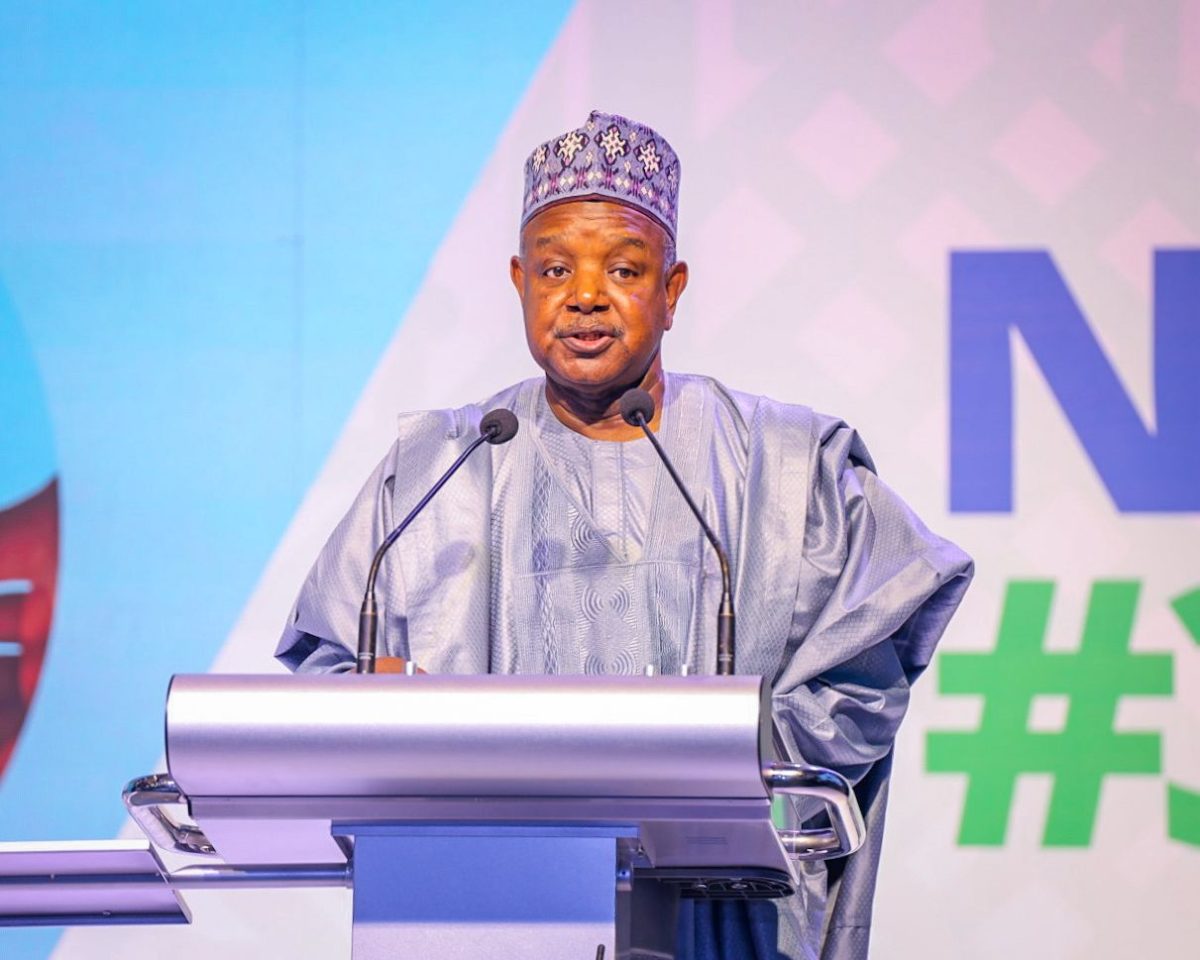This article was produced with the support of Nigerian Economic Summit Group
Nigeria’s minister of Budget and Economic Planning, Sen. Abubakar Atiku Bagudu, has hailed the Nigerian Economic Summit Group (NESG) as a model for public-private collaboration in Africa. He made the commendation at the commencement of the 31st summit of the NESG in Abuja which is running from October 6 – 8, 2025 under the theme – “The Reform Imperative: Building a Prosperous and Inclusive Nigeria by 2030”.
Highlighting the NESG’s role in facilitating dialogue between the public and private sector as a steady voice of support and synergy he said it has even been suggested that the impact of NESG be replicated continentally with the setting up of “an African Economic Summit Group.”
Sen. Abubakar Atiku Bagudu’s speech was a compelling update on the state of the economy, highlighting the nation’s reform trajectory, macroeconomic performance, and the pivotal role of the private sector in driving growth. He described his comments as focusing on providing “an update on Nigeria’s current economic conditions, the government’s policy responses, and the outlook for the future.”
Bagudu emphasized the shift in Nigeria’s economic paradigm and the role of the private sector, declaring, “we no longer talk of the public sector dominating the commanding heights of the economy. The private sector now drives the economy and has become an engine of growth.” This transition he emphasized is evident in the National Development Plan (NDP) 2021–2025, which allocated a staggering 86% of its ₦348.1 trillion investment size to private sector contributions.
Despite global headwinds, including the aftermath of Covid-19, the Russia-Ukraine war, rising global inflation, commodity price volatility, and domestic stagflation, insecurity, political transitions, weak revenue mobilization, and fiscal constraints, he said Nigeria’s private sector continues to demonstrate resilience.
Between 2021 and 2024, the investment-to-GDP ratio averaged 34.3%, surpassing the 27.8% target by 6.5 percentage points. “This higher-than-anticipated investment underscores a strong foundation for long-term productivity growth and economic resilience,” Bagudu noted.
Signs of Stability
Nigeria’s GDP growth, he told his audience, has shown consistent improvement. In 2024, quarterly growth rates rose from 2.98% in Q1 to 3.84% in Q4, culminating in an annual growth rate of 3.4%, up from 2.74% in 2023. The first half of 2025 continued this trend, with Q1 and Q2 recording 3.13% and 4.23% respectively.
Outlining the sectors fueling this growth, Bagudu highlighted contributions from the financial services, telecommunications, crop production, crude petroleum, and trade. Crude oil output, he noted, rose from 1.38 million barrels per day in 2022 to 1.8 million barrels per day in the first half of 2025. The Minister credited this to “robust activity in services and mining, particularly Coal Mining, Water Supply, Road Transport, Rail Transport, Water Transport, and Insurance.”
Reforms building Resilience
Bagudu noted that since May 2023, the administration has implemented bold reforms under the Renewed Hope Agenda and its eight priority areas. These include fiscal stabilization, insecurity mitigation, and exchange rate unification.
The minister acknowledged that reforms have however led to some challenges. “We recognize that these reforms came with short-term challenges for households and businesses,” he said before affirming that “We are determined to stay the course and ensure that the challenges that hindered the achievement of our manifest destiny are confronted and addressed.”
One of the most impactful reforms, according to the minister, was the exchange rate unification policy, which he said led to a 125.2% depreciation of the naira, from ₦672.85 per dollar in 2023 to ₦1,515.43 in 2024. The exchange rate has however strengthened to ₦1,493.99 per dollar by September 2025. “We must, therefore, remain resolute in our current strategy,” Bagudu urged.
Inflation, a major concern for households, is showing signs of easing. Headline inflation dropped from 32.15% in August 2024 to 20.12% in August 2025, while food inflation declined from 37.52% to 21.87% over the same period. “This trend will be sustained with deliberate policies to alleviate pressure on household budgets,” he declared.
A positive outlook and looking ahead to Agenda 2050
Bagudu said Nigeria’s external financial position has shown remarkable improvement in 2025, with the account surplus surging to US$5.28 billion in Q2, up from US$2.85 billion in Q1. External reserves also climbed from US$32.3 billion in December 2023 to US$43.0 billion by September 2025. “This sharp improvement underscores enhanced economic stability and financial resilience,” Bagudu stated.
Looking ahead, he said the government is preparing the National Development Plan 2026–2030, in alignment with Nigeria’s long-term Agenda 2050. The focus he told his audience remains on inclusive growth, job creation, and poverty reduction. “To build economic resilience, this administration is prioritizing job creation that drives productivity through agricultural modernization and targeted skills development,” Bagudu emphasized.
The NDP 2021–2025 he said, has set ambitious but not impossible goals which include achieving an “average annual GDP growth rate of 4.65%, lifting 35 million people out of poverty, creating 21 million jobs, as well as increasing the revenue-to-GDP ratio to 15%. Achieving these targets require a total investment of ₦348.1 trillion, with ₦49.7 trillion expected from the government and ₦298.3 trillion from the private sector.”
Noting that challenges persist, he said the outlook is positive with Nigeria achieving a revenue-to-GDP ratio of 18% and an average GDP growth rate of 3.16%, meeting 67.96% of its growth target.
As Nigeria charts its path toward 2030 and beyond, the message from the minister at NES#31 is clear: “reforms that promote long-term stability and economic resilience,” and private sector dynamism are clearly the cornerstones of the nation’s economic future.”

 Sign in with Google
Sign in with Google 



